Proceedings of the 8th World Congress
on New Technologies (NewTech'22)
August 03 - 05, 2022 | Prague, Czech Republic
The Plenary/keynote information for the 8th World Congress on New Technologies (NewTech'22) is as follows:
Plenary Speaker
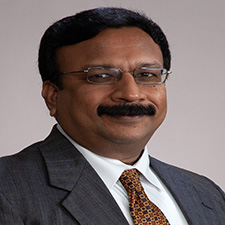
Dr. Rajasekhar Bala
National University of Singapore, Singapore
ICEPR'22 Plenary Speaker
Keynote Speakers
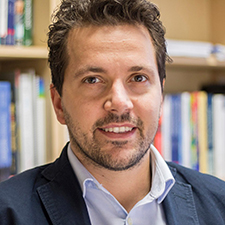
Dr. Umberto Berardi
Ryerson University, Canada
ICERT'22 Keynote Speaker
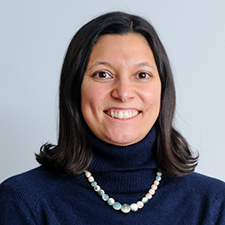
Dr. Marie-Abèle Bind
Harvard University, USA
ICEPR'22 Keynote Speaker

Dr. Mamadou Fall
University of Ottawa, Canada
ICEPR'22 Keynote Speaker
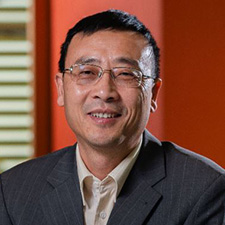
Dr. Huade Guan
Flinders University, Australia
ICEPR'22 Keynote Speaker
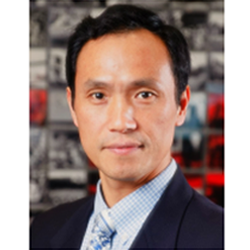
Dr. Dayan Ban
University of Waterloo, Canada
ICNFA'22 Keynote Speaker
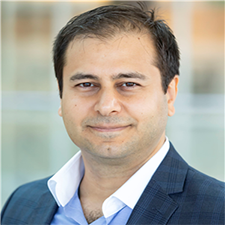
Dr. Can Bayram
University of Illinois, USA
ICNFA'22 Keynote Speaker
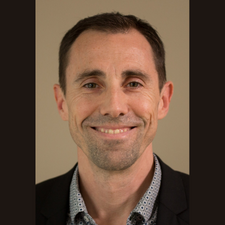
Dr. Sylvain Caillol
Montpellier University, France
ICNFA'22 Keynote Speaker
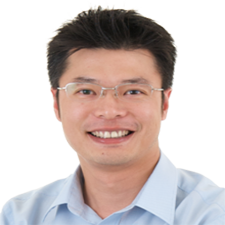
Dr. John Yeow
University of Waterloo, Canada
ICNFA'22 Keynote Speaker
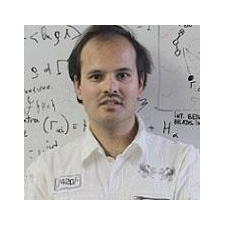
Dr. Vladimir Baulin
Universitat Rovira i Virgili, Spain
ICBB'22 Keynote Speaker
ICEPR'22 Plenary Speaker

Dr. Rajasekhar Bala
National University of Singapore, Singapore
ICEPR'22 Plenary Speaker
Professor Balasubramanian (Bala) is a Full Professor in the Department of Civil and Environmental Engineering at National University of Singapore. He has established an internationally recognized interdisciplinary research program to study and solve environmental problems of major concern including air pollution and water pollution. He has recently introduced a new educational program in “Sustainable Urban Development” to create a new generation of intellects who are capable of discovering and providing innovative solutions to the intricate issues of energy crisis, renewable energy, global warming, climate change, and pollution. His research has resulted in about 280 papers, published in scholarly journals with 18,000 citations and an H-index of 75. He is a recipient of many research awards including “Alan Berman Research Publication Award (Department of the Navy (USA))”, “Highly Cited Research Article Award (Elsevier)” and “PROSE (Professional and Scholarly Excellence) Award“. He has also received numerous teaching awards. He is a Lead Author for the United Nations Environment Program (UNEP)’s 6th Global Environment Outlook Report. He is a member of the Science Panel of the Asia-Pacific Clean Air Partnership (APCAP), appointed by UNEP. He is a Fellow of the Royal Society of Chemistry. Prof Bala is on the editorial board of several international journals.
Topic of Plenary:
Nature-based Systems (NbS) for Mitigation of Environmental Pollution

Dr. Umberto Berardi
Ryerson University, Canada
ICERT'22 Keynote Speaker
Dr. Berardi is Canada Research Chair in Building Science, Full Professor, and Director of the BeTOP center at Ryerson University in Toronto, Canada. His main research interests are related to the study of innovative solutions and new materials for improving the performance within the built environment. Recently, he has been focusing on integrating nanotechnologies into building systems. He has mainly focused on organic PCMs, such as paraffin and bio-PCM, and on granular and monolithic aerogel. Dr. Berardi has an extensive publication record, including 130 peer-reviewed journals, 130 international conference papers, and five books. Dr. Berardi’s publications have received 10,000 citations in Google Scholar, where he has an h-index of 45, while Scopus database counts over 6,000 citations and an h-index of 40. Dr. Berardi has a body of funded research comprising over $2.5 M in government and private sector sponsored research. He has been awarded a CFI-JELF; NSERC Discovery Grant; Early Research Award from the MRI and many other
Topic of Keynote:
Building Resiliency to Climate Change: What Path for the Building Energy Demand?

Dr. Marie-Abèle Bind
Harvard University, USA
ICEPR'22 Keynote Speaker
Marie-Abele Bind is an Instructor of Investigation at the MGH Biostatistics Center. Her research interests focus on developing causal inference methods for quantifying the effects of randomized and non-randomized exposures on various outcomes and understanding the mechanisms explaining these effects. Her current research is funded by the NIH Early Independence Award program. She completed her joint PhD in Biostatistics and Environmental Health at the Harvard School of Public Health, working with Professors Joel Schwartz and Brent Coull. She then became a Ziff postdoctoral Fellow at the Harvard University Center for the Environment. In 2016, she was awarded an Early Independence Award (NIH High-Risk High-Reward research grant) and became Research Associate in the Department of Statistics. From 2017 to 2021, she became a John Harvard Distinguished Science Fellow.
Topic of Keynote:
Heterogeneous Ozone Effects on the DNA Methylome of Bronchial Cells Observed In a Crossover Study

Dr. Mamadou Fall
University of Ottawa, Canada
ICEPR'22 Keynote Speaker
Dr. Mamadou Fall is a Full Professor in the Department of Civil Engineering at the University of Ottawa (Canada), the Chair of the Department of Civil Engineering and the Vice President Technical of the Canadian Geotechnical Society. He graduated from the Earth Science Institute at the University of Dakar (Senegal) and was awarded a PhD excellence scholarship for his PhD studies in Germany. Subsequently, he was granted a postdoctoral fellowship by the German Research Foundation and coordinated the German Research Chair of Environmental Geosciences and Geotechnics.
Prof. Fall and his team are performing leading-edge research in the geotechnical and geoenvironmental fields in close collaboration with the industry, major federal and provincial governmental institutions, and international partners. He has been leading several major research projects that are related to geotechnical hazards and risks, mine waste management, underground disposal of nuclear wastes, problem grounds and coupled thermo-hydro-mechanical-chemical (THMC) processes in geosystems. He is currently supervising a large research team of postdoctoral researchers and graduate students (PhD and Master).
Topic of Keynote:
Tailings-Based Engineered Barriers for Waste Containment

Dr. Huade Guan
Flinders University, Australia
ICEPR'22 Keynote Speaker
Dr Huade Guan is Associate Professor in Hydrology at Flinders University, Australia. His research interests are mostly focused on water resource and environmental issues from the interface of land surface and atmosphere, through soil and vegetation, to groundwater table. He leads ecohydrology and hydrometeorology research group (EcoH2OMe) at Flinders.
Huade Guan is a Chief Investigator of the National Centre for Groundwater Research and Training since 2009. His research in NCGRT started from field-based investigation of vegetation water use under various climate conditions, using hydraulic, micrometeorological, physiological and isotopic methods, developed to numerical modelling of plant transpiration and drought responses, and to remote sensing analysis of large-scale interactions of climate and vegetation.
Topic of Keynote:
Heat Mitigation in an Australian Coastal City with a Dry-Summer Climate

Dr. Dayan Ban
University of Waterloo, Canada
ICNFA'22 Keynote Speaker
Dayan Ban is a Professor of Nanotechnology Engineering in the Department of Electrical and Computer Engineering of the University of Waterloo. He received a B.Sc. and M.Sc at the University of Science and Technology of China, Hefei, China. He received a Ph.D. in Electrical and Computer Engineering from the University of Toronto, Toronto, Ontario, Canada, in 2003. During 2001-2002, he was a visiting scientist at Nortel Networks Optical Components, Ottawa, Ontario, Canada. Dr. Ban was on staff at the Institute for Microstructural Sciences of the National Research Council, Ottawa, from Sept. 2002 to Oct. 2005. He was a visiting scientist at the Research Lab of Electronics at MIT, Boston, US in 2009. Dr. Ban is a senior member of IEEE/LEOS and a registered Professional Engineer in Ontario. His research interests include optoelectronic devices, quantum cascade lasers, energy harvesting devices as well as scanning probe microscopy technique. Dr. Ban has authored or coauthored over 220 papers in refereed journals and conference proceedings and has contributed 2 book chapters and 13 patents/patent applications.
Topic of Keynote:
High Performance Nanogenerators for Energy Harvesting and Sensing Applications

Dr. Can Bayram
University of Illinois, USA
ICNFA'22 Keynote Speaker
Prof. Can Bayram is an Associate Professor in the Department of Electrical and Computer Engineering, a resident faculty at the Nick Holonyak, Jr Micro and Nanotechnology Laboratory, and an affiliate faculty of the Carle Illinois College of Medicine and Health Care Engineering Systems Center of University of Illinois at Urbana-Champaign, IL, USA. He is an expert in III-V materials and photonic and electronic devices. He has performed more than 3,000+ epitaxial growths with metalorganic chemical vapor deposition systems and fabricated detectors, light emitting diodes, solar cells, resonant tunneling diodes, and transistors in class 100 and 1000 cleanrooms totaling 20,000+ hrs equipment usage. His current research interests lie in the intersection of novel III-V materials, hetero-structures, and photonic and electronic quantum devices. Particularly, his research group explores III-V materials and novel devices, hetero-integration of III-Vs on unconventional platforms such as graphene and silicon, heat transport across/through semiconductors, efficiency droop mechanisms and remedies in AlInGaN emitters, and ultra-fast THz photonics/electronics. Prof. Bayram’s work has been recognized widely. He is the recipient of the International Union of Pure and Applied Physics Young Scientist Prize in Optics, IEEE Nanotechnology Council Early Career Award, an NSF CAREER Award, a CS Mantech Best Paper Award, an AFOSR Young Investigator Award, the IEEE Electron Devices Society Early Career Award, and a Best Paper Award at the 11th International Conference on Infrared Optoelectronics. For his achievements in ultraviolet-to-terahertz engineering of III-V semiconductor materials and devices, OSA, SPIE, and IEEE recognized him with senior member status. Prof. Bayram supervised/supervising 3/4 Ph.D. Theses, 1/1 M.S. thesis, 5/1 senior theses and (co-) authored 54 journal papers (h-index ≥ 25), 39 conference proceeding papers, 2 book chapters, and has ≥ 47 patents issued/pending.
Topic of Keynote:
Through Physics and Smart Materials, Breaking the Efficiency (Droop) Barrier in Light Emitting Diodes for the Ultimate Solid-State Lighting

Dr. Sylvain Caillol
Montpellier University, France
ICNFA'22 Keynote Speaker
Sylvain Caillol is Research Director with CNRS. He graduated engineer from the National Graduate School of Chemistry of Montpellier in 1998 and then received his M. Sc. Degree in Chemistry from the University of Montpellier. He received his PhD degree in 2001 from the University of Bordeaux. Subsequently he joined Rhodia Company. Later, promoted Department Manager, he headed the Polymer Research Department in the Research Center of Aubervilliers. In 2007 he joined the CNRS at the Institute Charles Gerhardt of the University of Montpellier where he started a new research topic dedicated to Green Chemistry and Biobased Polymers. He is also Scientific Manager of Institute Carnot Chimie Balard Cirimat. He is co-author of more than 200 articles, patents and book chapters. He won the Green Materials Prize in 2018 and 2020 and was nominated Pioneering Investigator by the Royal Society of Chemistry in 2019.
Topic of Keynote:
A Glance at Biobased and Sustainable Aromatic Polymers for Coatings and Binders

Dr. John Yeow
University of Waterloo, Canada
ICNFA'22 Keynote Speaker
John T. W. Yeow received the B.A.Sc. degree in electrical and computer engineering, and M.A.Sc. and PhD. degrees in mechanical and industrial engineering from the University of Toronto, Toronto, ON, Canada. He is currently a Professor and a University Research Chair in the Department of Systems Design Engineering at University of Waterloo, Waterloo, ON, Canada. He is focused on the development of micro/nanodevices for a wide range of applications. He is a recipient of the Professional Engineers Ontario Young Engineer Medal, Professional Engineers Ontario Engineering Excellence Award, Natural Science & Engineering Research Canada Innovation Challenge Award, Douglas R. Colton’s Medal of Research Excellence, Micralyne Microsystems Design Award, Ontario Ministry of Research and Innovation’s Early Researcher Award, University of Toronto Alumni Association 7T6 Early Career Award, 2011 IEEE NANO Excellence Paper award and IEEE Canada Outstanding Engineer Award. He was a Canada Research Chair in Micro/Nanodevices (2004 – 2019). He served as the Editor-in-Chief of the IEEE Nanotechnology Magazine from 2014 – 2019, a Senior Editor of the IEEE Transactions on NanoBioscience, and an Associate Editor of the IEEE Transactions of Nanotechnology, and Microsystems & Nanoengineering. He is a Fellow of the Canadian Academy of Engineering, the Engineering Institute of Canada, Engineers Canada, and a Member of College of New Scholars, Artists and Scientists of the Royal Society of Canada. He was a IEEE Nanotechnology Technical Council (NTC) Distinguished Lecturer, and a recipient of the 2021 IEEE NTC Distinguished Service Award.
Topic of Keynote:
Multi-Pixel Field Emission Based X-ray Generators

Dr. Vladimir Baulin
Universitat Rovira i Virgili, Spain
ICBB'22 Keynote Speaker
Vladimir Baulin did his doctorate studies in theory of polymers at Commissariat à l’Energie Atomique (CEA-Grenoble). He has obtained a PhD degree in physics from Université Grenoble-Alpes, France in 2003. In 2004-2006 he was a postdoctoral researcher at the Institut Charles Sadron, Strasbourg, France. Since 2008 Vladimir Baulin leads a group of Soft Mater theory at the University Rovira i Virgili (URV), Tarragona, Spain (http://vbaulin.softmat.net). In 2014-2018 he was a Coordinator of EU funded Initial Training Network SNAL: Smart Nano-objects for Alteration of Lipid bilayers (http://itn-snal.net). From 2021 he is a Distinguished researcher Beatriz Galindo at URV.
Topic of Keynote:
Mechanical Destabilization of Lipid Membranes by Nanoparticles: From Microplastics to Gold Nanoparticles.